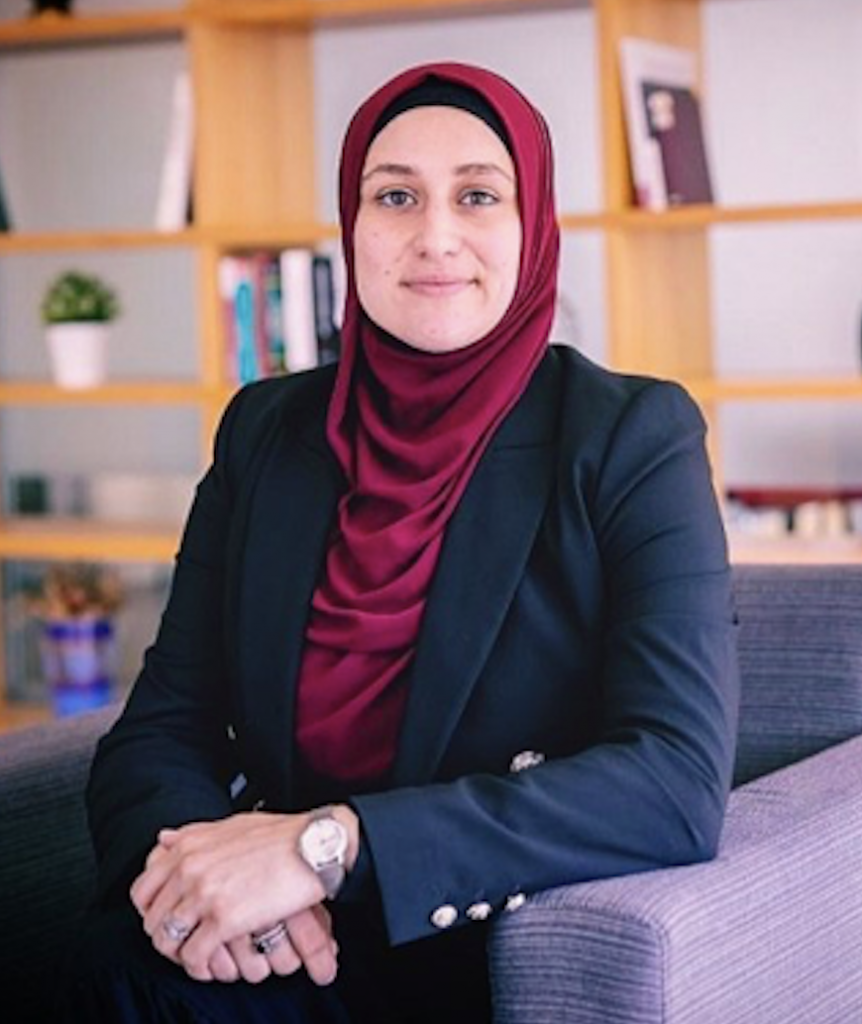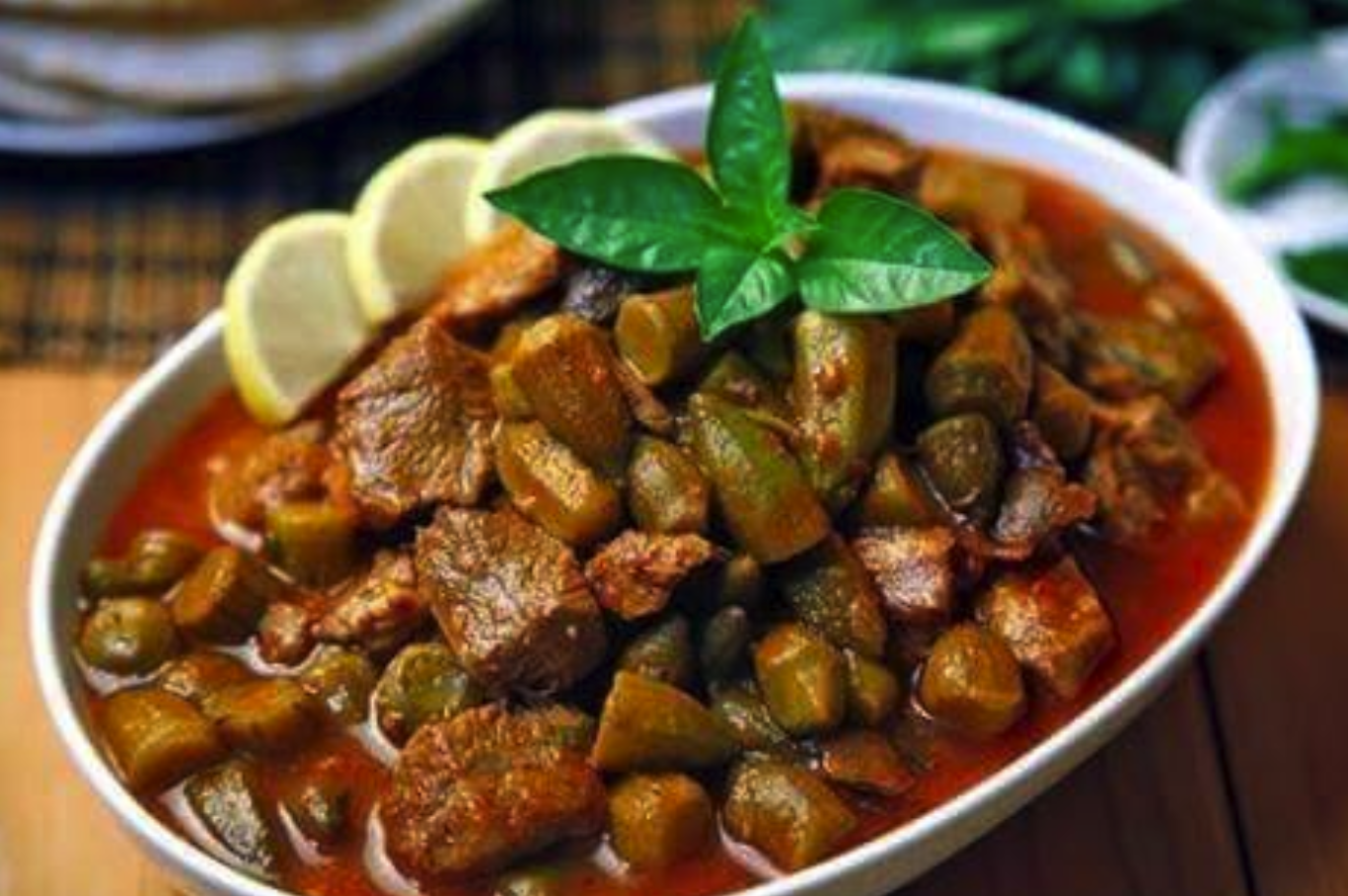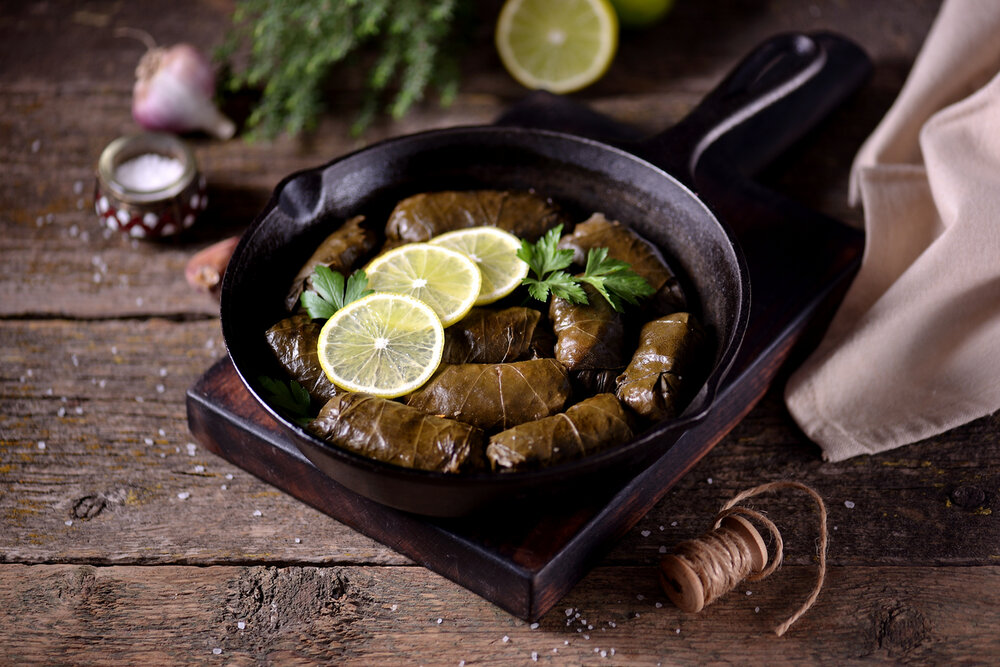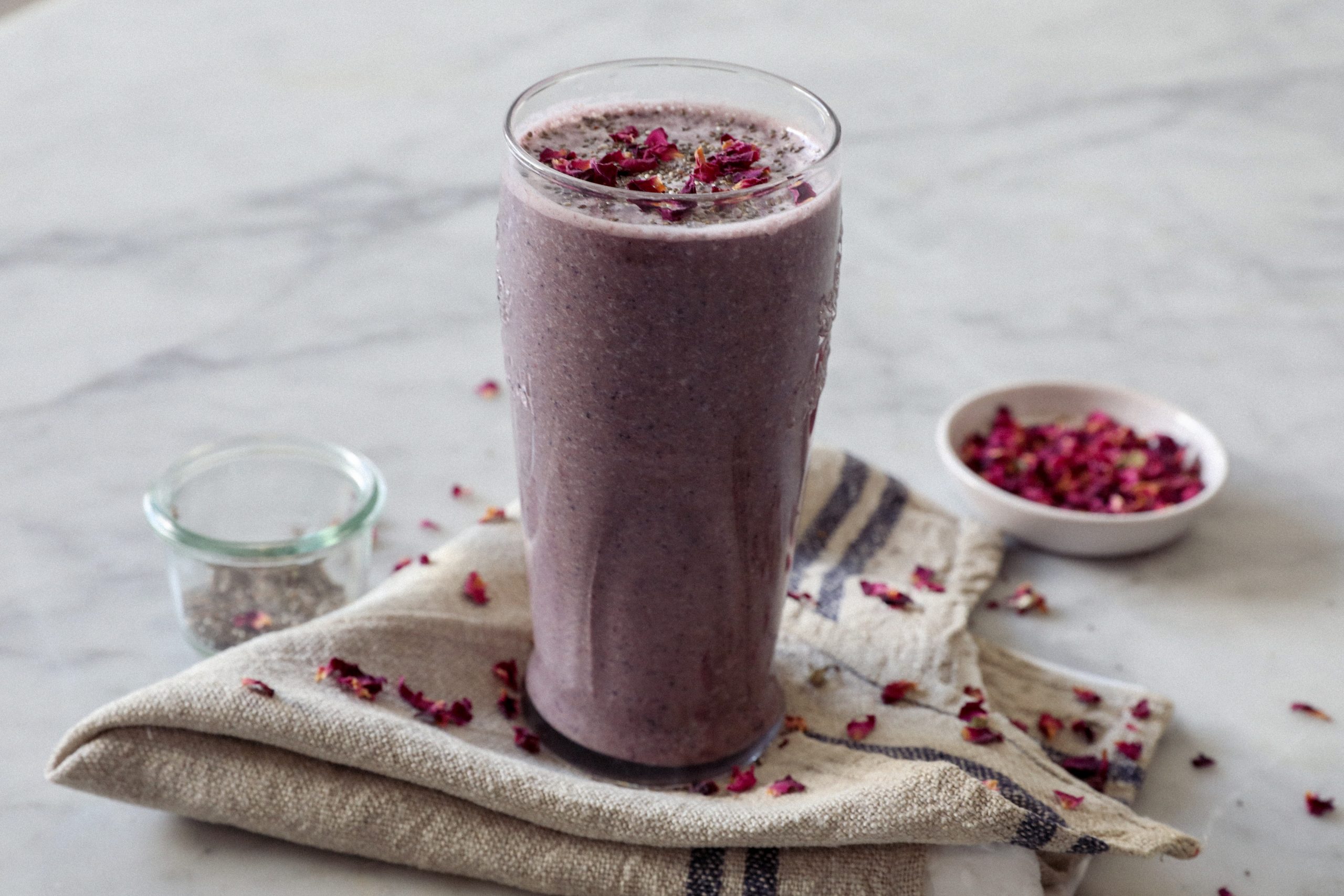Ramia’s Lebanese Bamia (Okra)
 Lebanon
Lebanon 
I was born and raised in Australia. My father is Palestinian, and my mother is Lebanese. I pride myself on the mixed heritage in my family. You see, my dad was actually born and raised in Egypt, and my mother was born in Ghana, Western Africa. You could probably say it is somewhat complicated but this is the essence of the Palestinian diaspora!
The benefits of such a mix is that I’ve been exposed not only to a variety of dialects in and within my family, but also an assortment of flavours, recipes and ingredients, which I confess may have at times been the subject of crossbreeding across the different cultures.
Bamia or okra is one of those dishes that has a myriad of faces – depending on where you come from within the Middle East, there are so many ways to cook it. My Palestinian folk would normally add garlic as the dominant ingredient to the dish, whereas my Lebanese side would ensure that coriander and garlic go hand in hand no matter what. Also, depending on who is cooking the bamia, there will be different textures and thicknesses to the sauce – depending on whether you are a fan of eating bamia with rice or bread?
In my case, despite the fact that more often than not I identify as Palestinian, I must admit that the Lebanese side manifests itself in my cooking – especially my bamia. Having been raised by and spent substantial time with my Lebanese maternal grandmother, I can’t help but add coriander and garlic to my bamia dish. It was something my grandmother taught my mother, and something my mother ensured I never overlooked – “The smell of coriander and garlic together is just phenomenal” she would always say. And I definitely agree!
Growing up, and even now as an adult, I can’t say I have prided myself on being overly invested in my cooking regime nor can I purport to being a cooking expert – EVER! If anything, I’m closer to the “just scraping through” line than anything else. I’d really much rather focus my efforts on writing affidavits or reviewing contracts or drafting a will! Hahaha. Hardly a domestic goddess! BUT……and a big BUT… I am proud of my bamia and I must admit that this is one dish that everyone who tries it compliments me on. Credit is probably due to my mother and grandmother but if I may say so, bamia is my signature dish and I love the fact that I really can cook this dish well. I also love that it’s a kind of hand-me-down treasure like a piece of jewellery that has been passed on from one generation to the next… And from Lebanon to Ghana to Australia.
Ramadan is a time when we gather with family, friends, colleagues – quite often in a community centre because there are just too many of us to fit in one house – and bamia is a regular on our table for iftar. This year will be different and those large gatherings won’t be happening due to Coronavirus but we will break the fast and catch up through Zoom and Skype, keeping the community together as much as possible.
Do try my Bamia recipe – and I hope you will enjoy cooking it for you and yours too.
Ramia
2020
Share this story

Bring the lamb to the boil, covering it with water. Add salt, pepper and cardamom seeds until meat is cooked (usually requires 30-40 minutes)
Once meat is cooked, pour the meat with its water into a bowl, and remove the cardamom seeds.
Chop the garlic head and coriander, and fry with olive oil. Once half cooked, add the frozen okra and stir a few times.
Leave the okra for approx. 10 minutes, then add the meat broth to the okra. Leave to cook for approx. 20 minutes.
Add the cooked meat and leave to cook for 10 minutes on medium heat.
Once water starts to boil, add 2-4 tablespoons of tomato paste. Mix well with the ingredients, and add salt/pepper accordingly. Leave to cook on low heat for 20 minutes.
Cook rice on the side.
The final touch is to fry 3 to 4 finely chopped garlic cloves in some olive oil with a pinch of fenugreek. Add this to your pan and stir well. It’s ready! (Ideally you should fry the garlic in Arabic clarified butter but most people in Palestine make their own clarified butter with some spices which is hard to replicate in Europe. Olive oil and fenugreek gives it a good flavour so it’s a nice alternative.)




